It's been called the 'sport of kings,' but on May 16 at Hedekin Field on Fort McPherson, the day's polo match was for the selfless servants of the United States armed forces.
The exhibition, which pitted six players, three representing an Army team and three a Marine team, was part of the post's celebration of Armed Forces Day.
Although rain kept the match from being played in its entirety, spectators got to witness one chukka, a 7 1/2- minute period in the game.
Normal games run six chukkas. Despite the shortened game, spectators got a chance to see the game play, observe the equipment used in the game, learn the rules of the game andreceive a history lesson on the sport.
Among the long lineage of the sport is a smaller history linked to Fort McPherson, which once was home to many polo games.
The exhibition match brought the sport back to the field after a 28-year absence.
The sport was once popular with the military, with notable players, including Gen. John Pershing, Gen. George Patton Jr. and Capt. David Hedekin, for whom the field is named, and was a training tool for Army cavalry Soldiers.
Although cavalrymen of today's Army are no longer riding horses into battle, horses are finding new life as training tools for a different type of Soldiers: wounded warriors.
As part of the day's event, the importance of the Horses for Heroes program, a program that offers both mounted and non-mounted therapy, and awareness of the local program were brought to light.
Locally, the program is held at Chastain Horse Park in Atlanta. Amy Lance, founder of Chastain Horse Park, said she got the idea for using her horses as a tool for therapy after reading about how the Caisson horses used to pull coffins during funerals at Arlington cemetery were given this secondary duty as therapy animals.
So far, nearly 50 servicemembers from all branches of the armed forces have participated in the program at Chastain, Lance said.
Leslie Olsen, the head instructor for Horses for Heroes at Chastain, has worked with 21 of these individuals and notes the success the program has had on the wounded veterans.
"They (the veterans) are able to relax, forget about their injuries. The horses aren't judgmental, which helps them forget their injuries," she said. "It's a wonderful, proven therapy."
Evidence of that claim is seen in cases both Lance and Olsen have seen.
Olsen told of a Soldier with a traumatic brain injury who is making strides fighting his own injury by being able to focus on an injured horse at the park. The Soldier bonded with the horse, which was suffering from a broken leg.
"He took over the horse's therapy," Olsen said, explaining that in grooming and taking care of the horse, the Soldier found a purpose and partner in rehabilitating his injuries and provided relief from the anxiety and depression he associated with his own injuries.
Lance said her most memorable account of the benefits of pairing a horse with a wounded veteran came from a quadriplegic.
"At first, he didn't believe that he could be put on a horse and ride. Another thing he was frustrated with was having to look up at everyone all the time, being confined in a wheelchair," Lance said. "But on the horse, he was on a higher level and had a sense of control."
That authority is very vital in empowering the individual and instilling in them a sense that, despite their injury, they still have power and control over things, Lance said.
"You can't just overpower a 2-ton horse," Lance explained, adding that guidance comes from developing a bond with the creature. She said the size of a horse and what it represents adds even more significance to the bond.
"The horse represents strength. It's helpful when someone makes that connection with the animal," she said, describing how the power of the horse transfers to the wounded warrior.
Mounted therapy also helps strengthen muscles in the rider's core, improves their balance and provides a sense of accomplishment, in addition to the mental benefits, said Lance.
All in all, the therapy provides a win-win situation for all involved, a statement that unfortunately for members of the Marine team, didn't apply to the match. The Marines lost to the Army by a score of 3 to 1.
At the end of the day, it was difficult for anyone to be considered a loser. Spectators got a glimpse into the sport, the Horses for Heroes program got publicity and everyone got a catered meal from Avenue Catering Concepts.
For more information on Chastain Horse Park and the Horses for Heroes program, visit http://h4hchastain.org.
"It's about helping Soldiers get readjusted into mainstream society," said Joe Meyer, a former Army major who played in the polo match, of the Horses for Heroes program. "It's a worthy project."
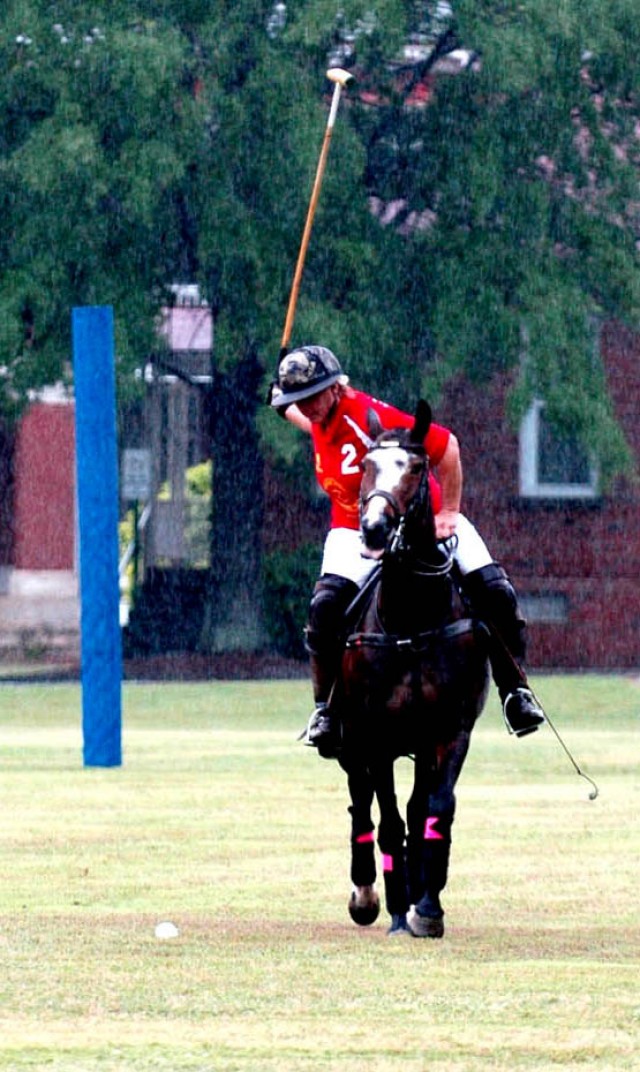
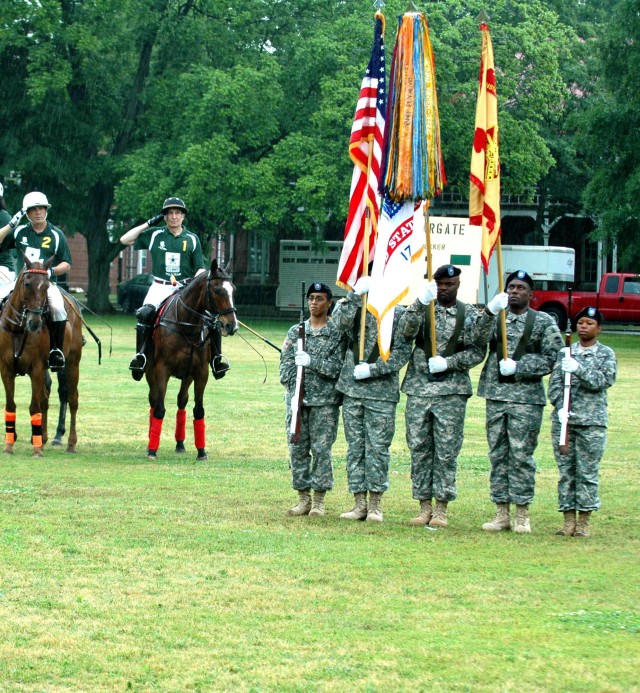
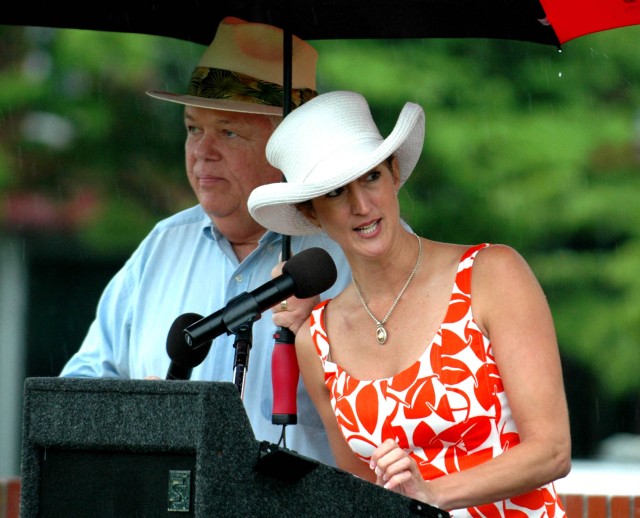
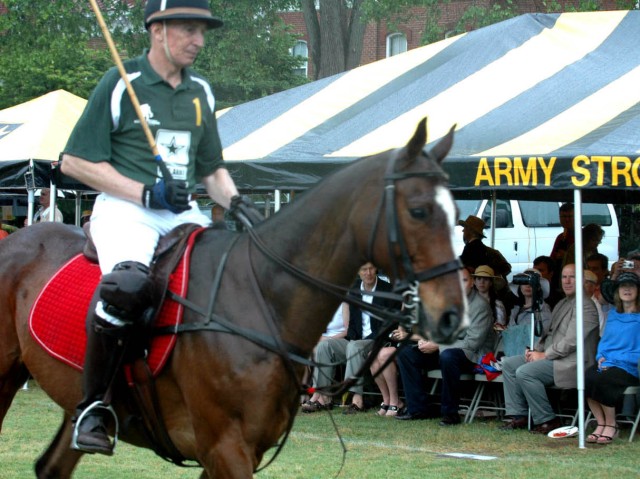
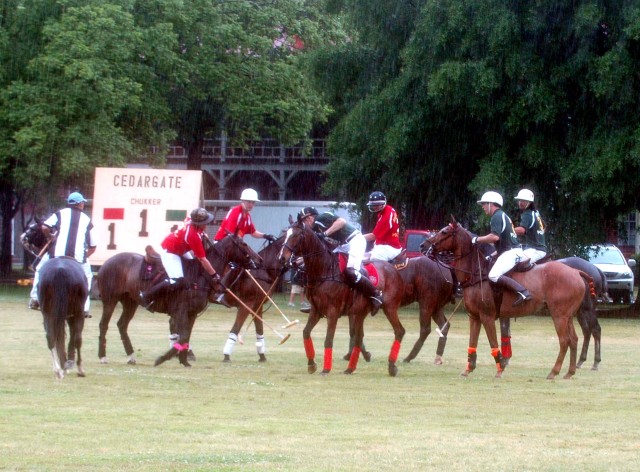
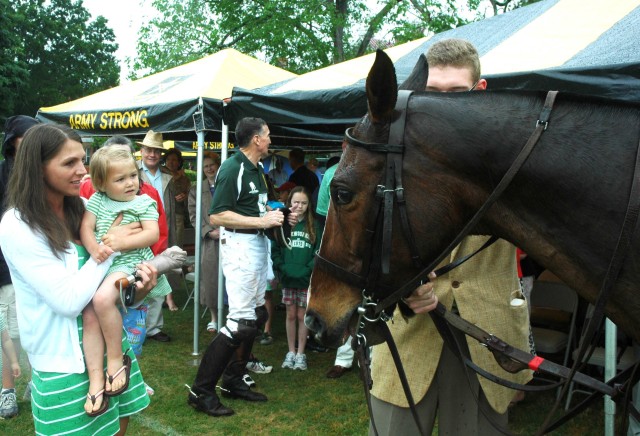
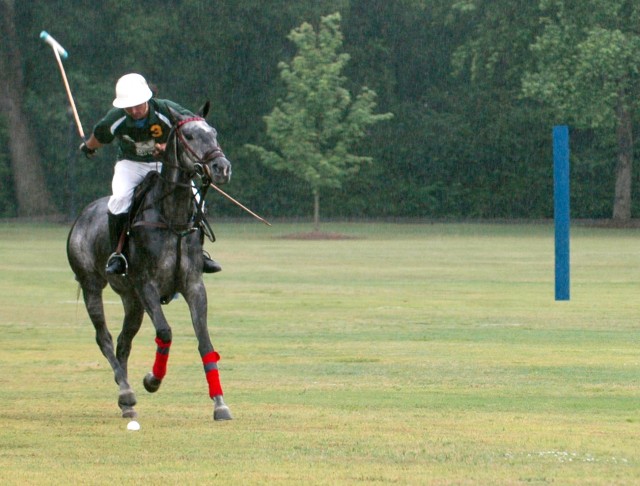
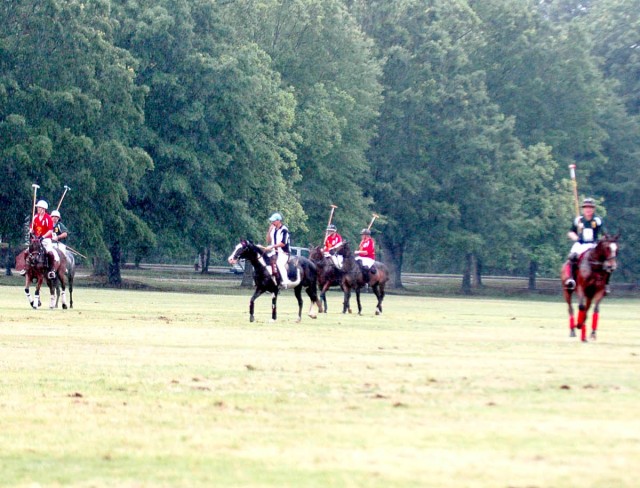
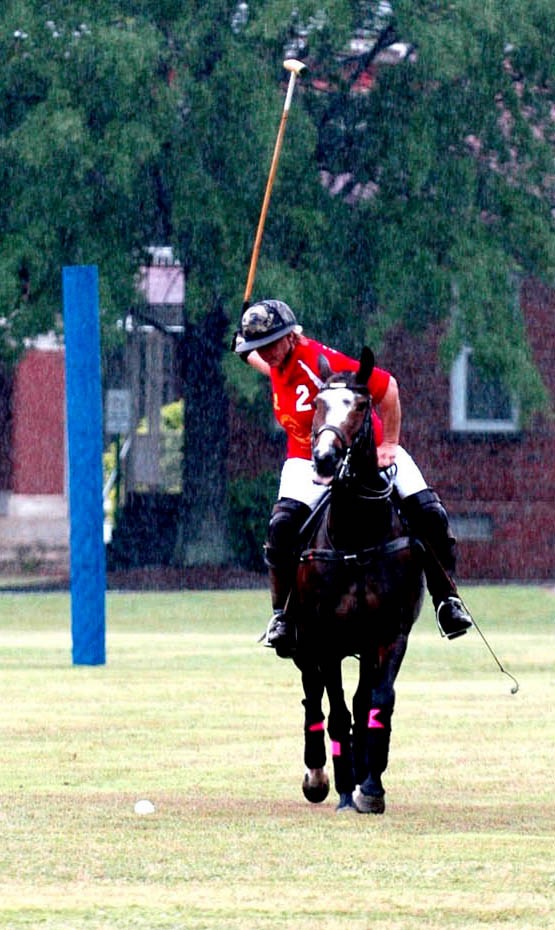

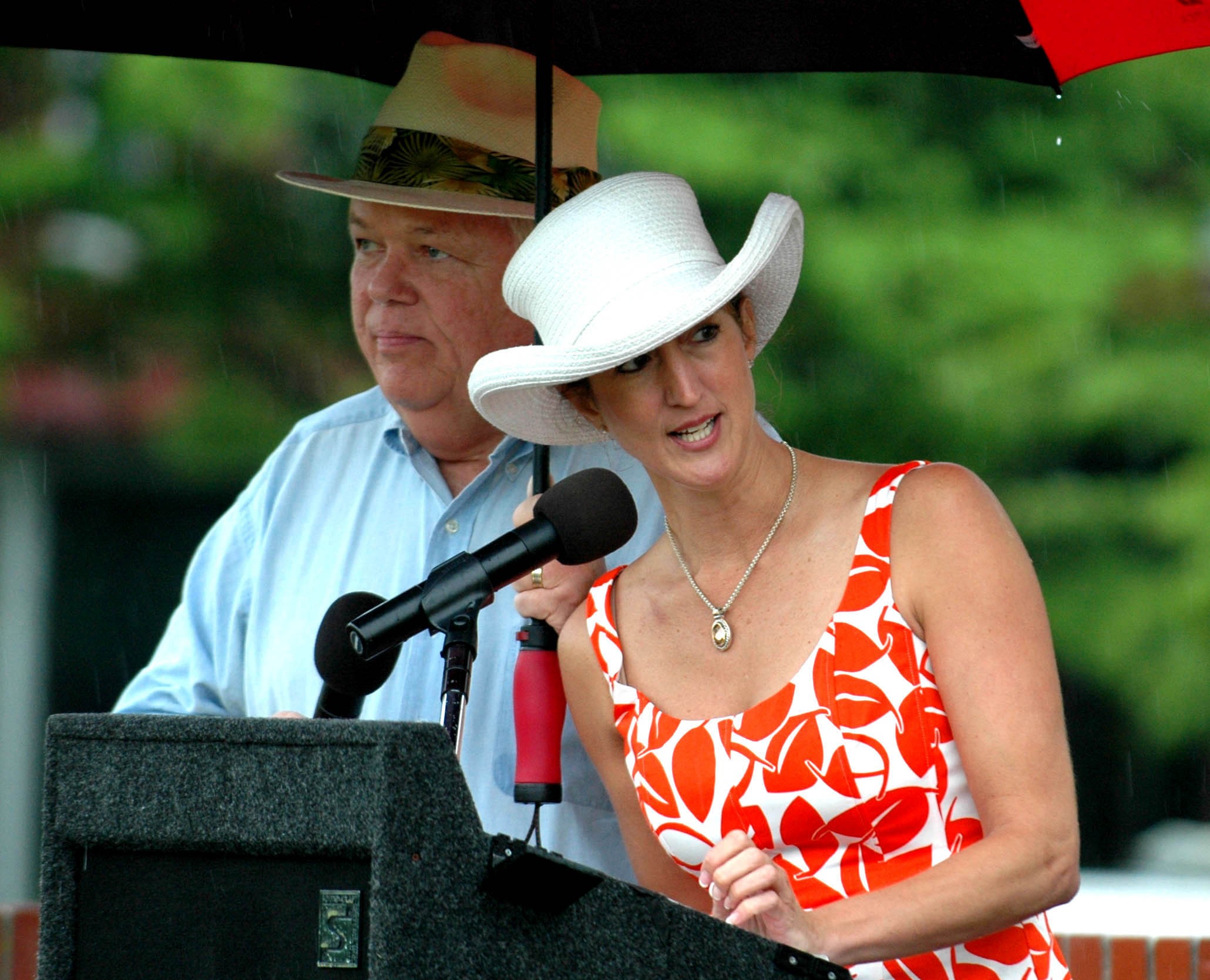
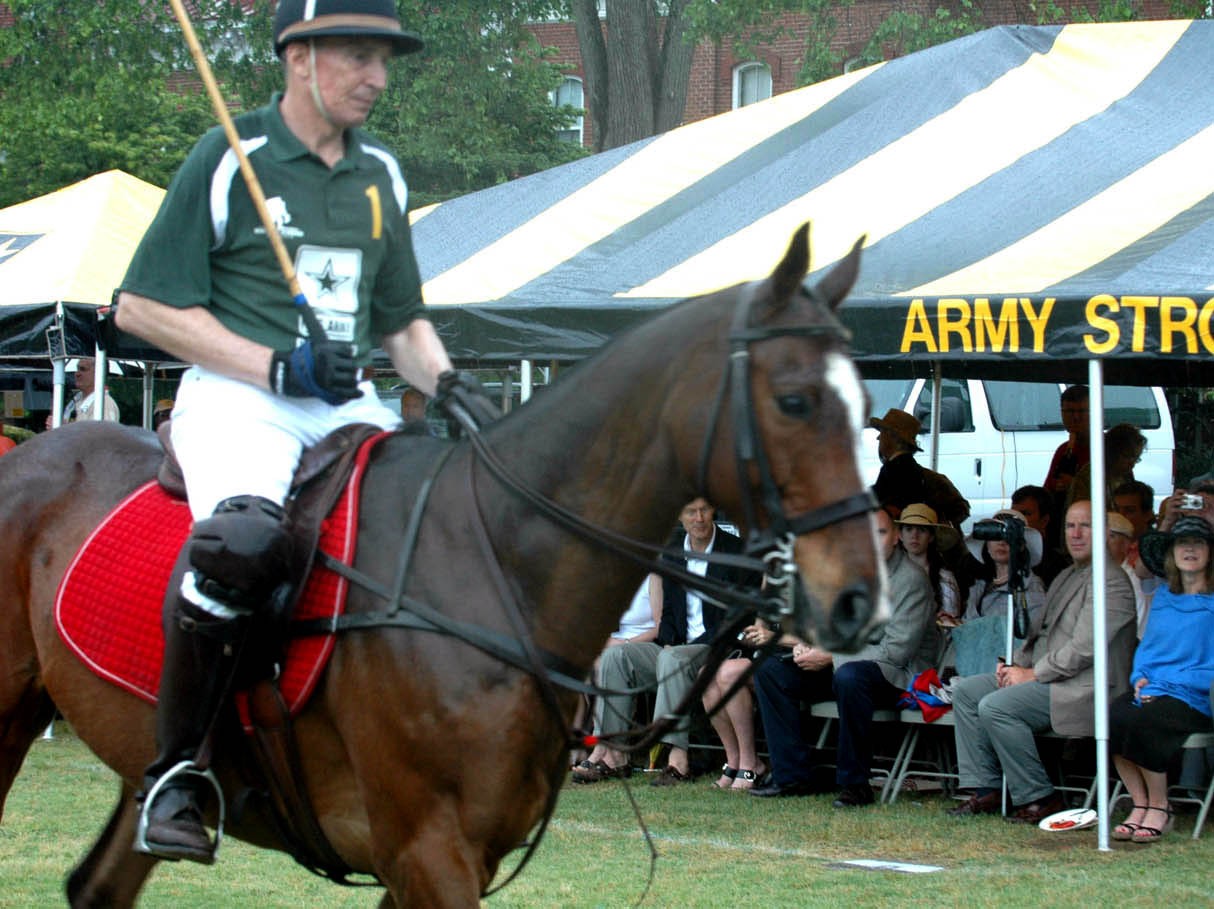

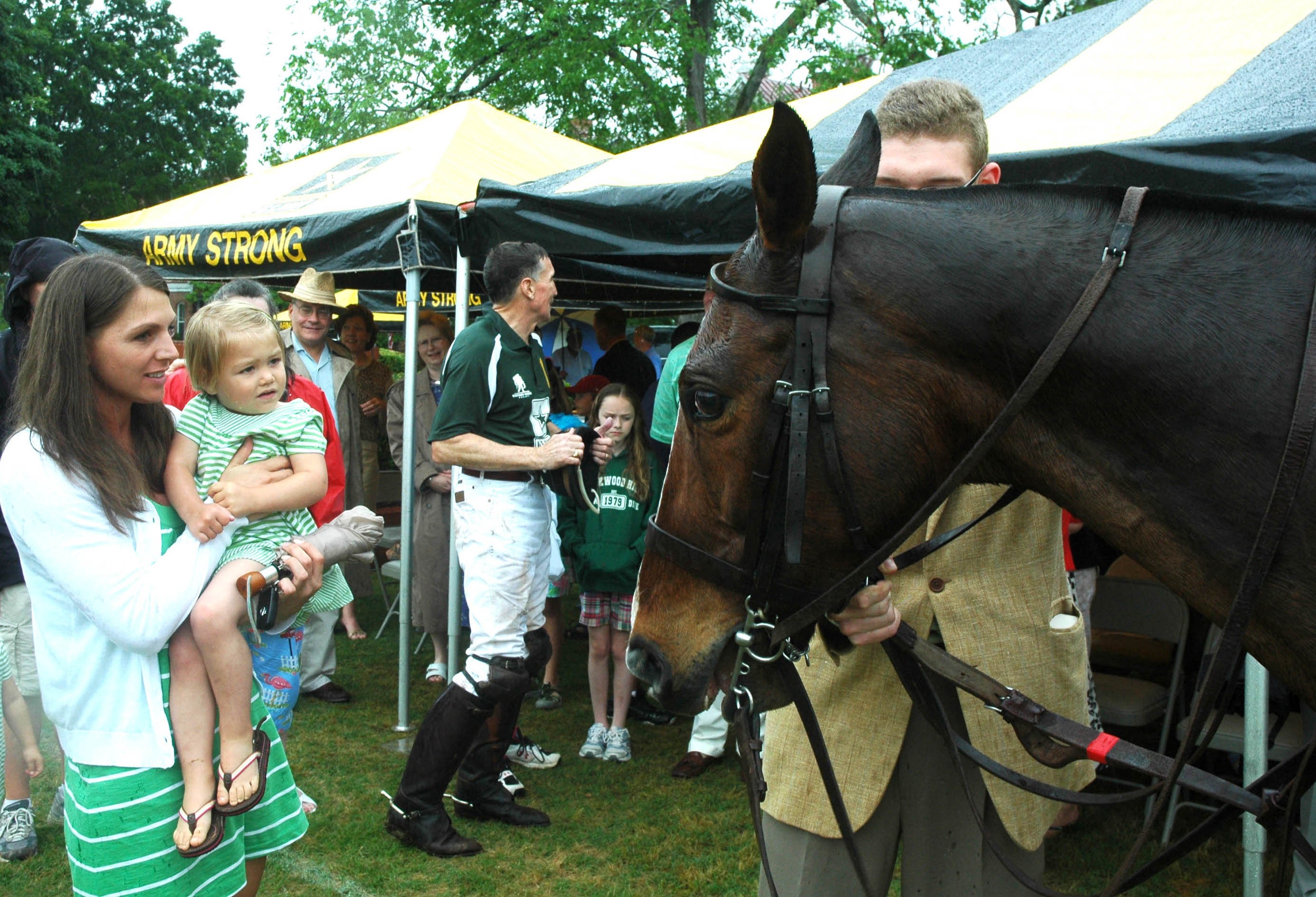
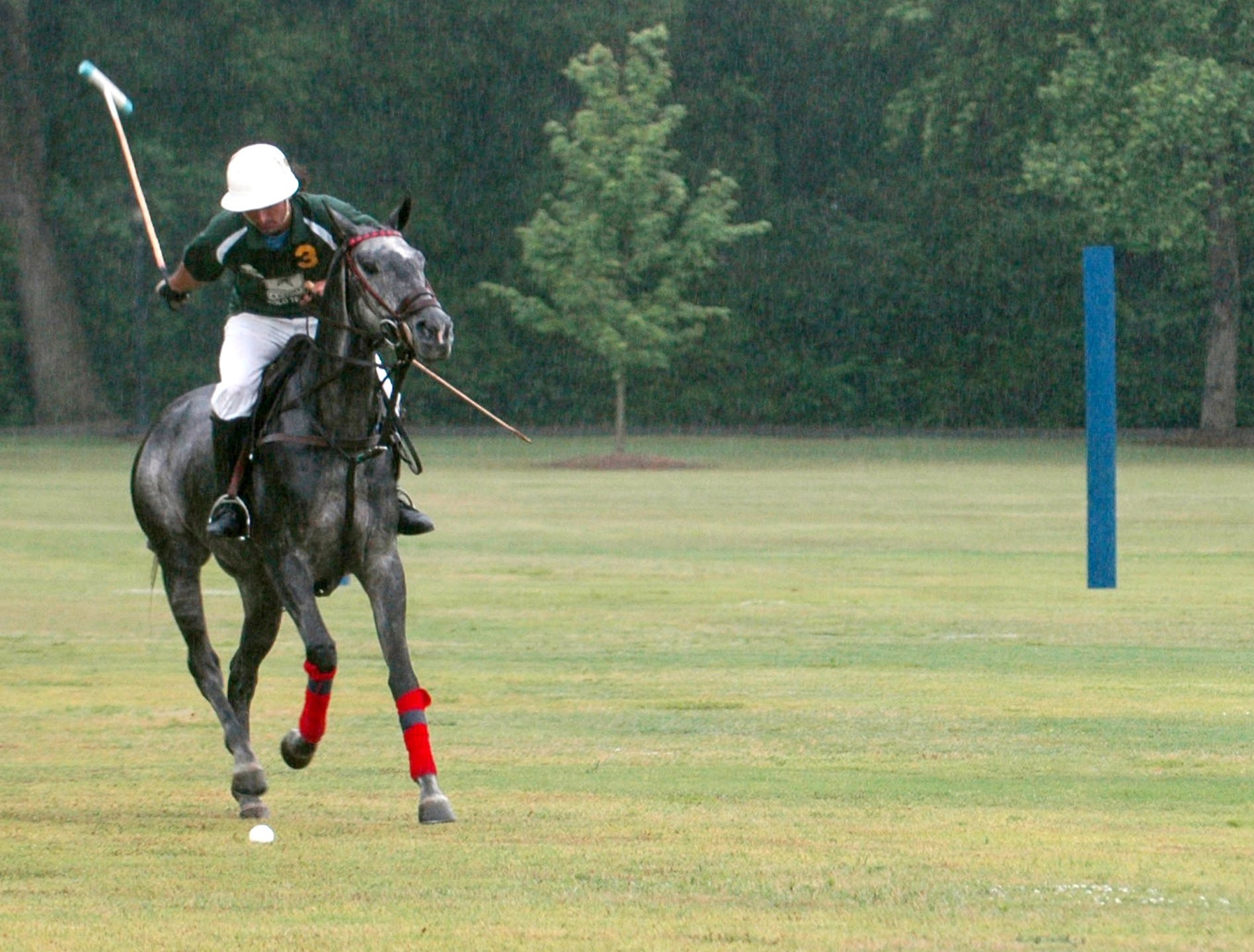
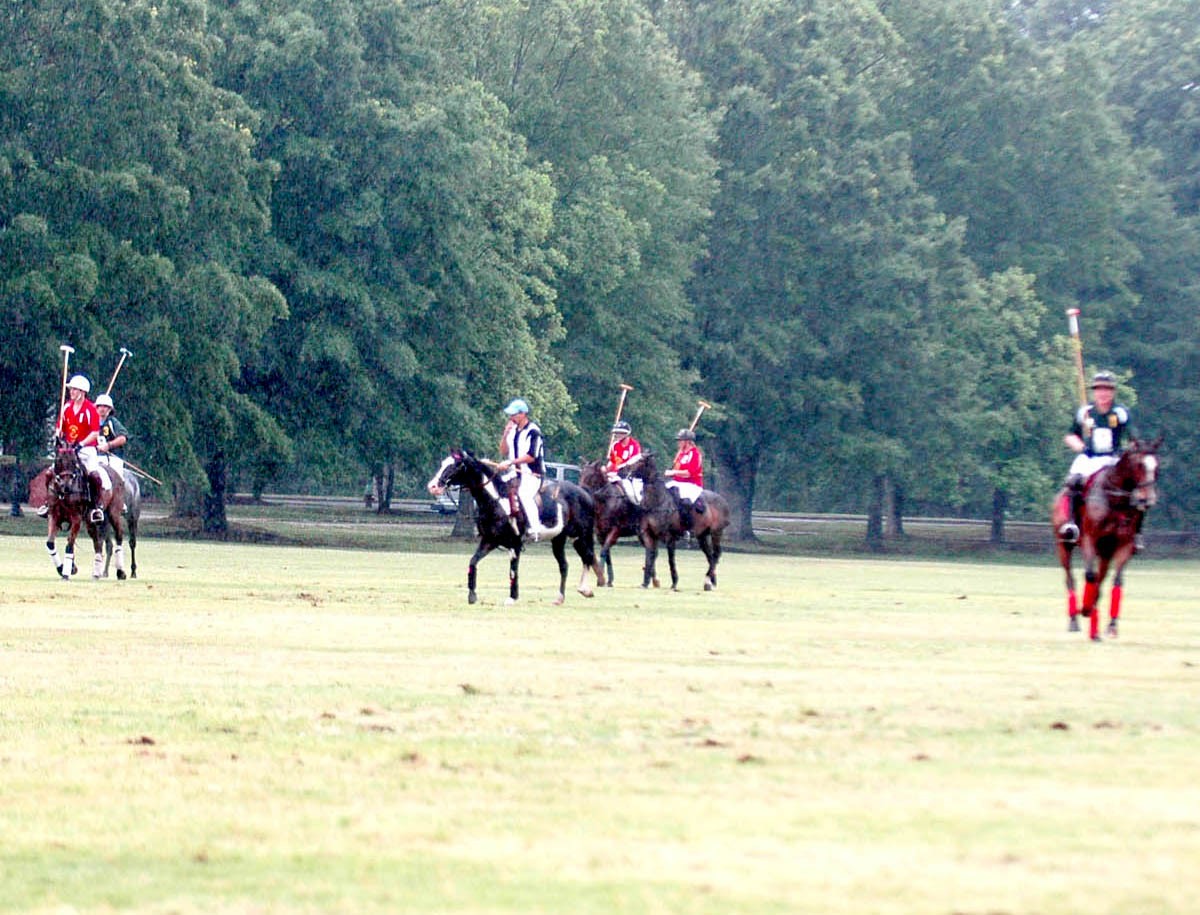
Social Sharing